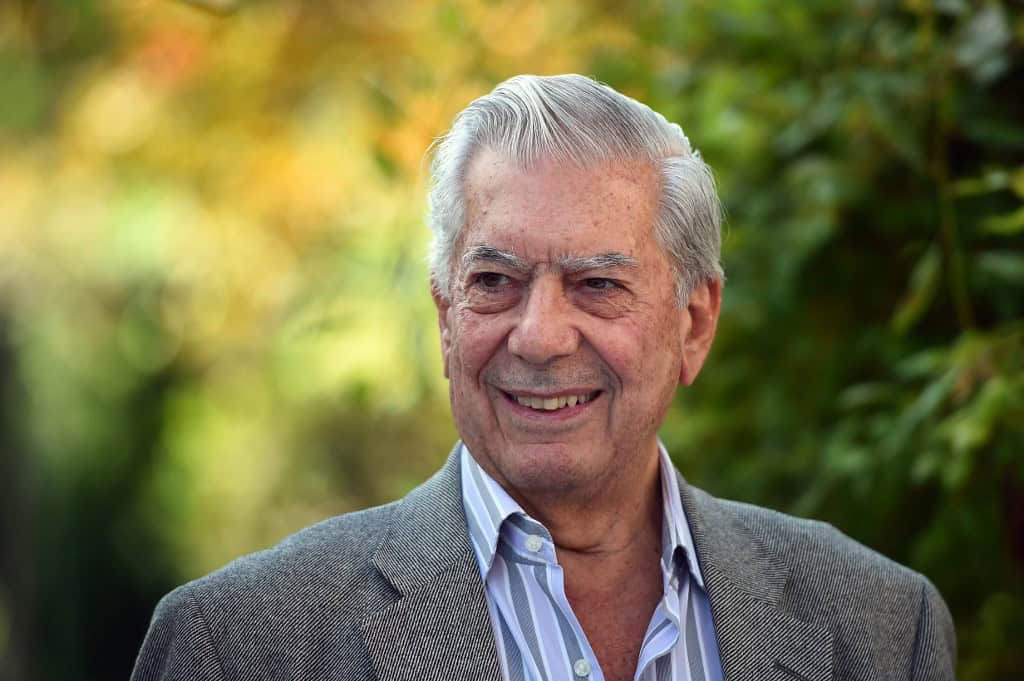The Peruvian Nobel laureate in literature, Mario Vargas Llosa, passed away this Sunday in Lima at the age of 89, and with him, the last representative of the golden generation of Latin American literature is lost. A universal writer emerging from the complex Peruvian reality, Vargas Llosa was part of the so-called Latin American “boom” alongside other greats such as the Colombian Gabriel García Márquez, the Argentine Julio Cortázar, and the Mexicans Carlos Fuentes and Juan Rulfo.
“With deep sorrow, we announce that our father, Mario Vargas Llosa, has passed away today in Lima, surrounded by his family and at peace,” his eldest son Álvaro reported on the social network X in a message also signed by his siblings Gonzalo and Morgana. “His departure will sadden his relatives, his friends, and his readers around the world, but we hope they find comfort, as we have, in the fact that he enjoyed a long, multifaceted, and fruitful life,” the family added in a statement.
Vargas Llosa described social realities in masterpieces such as “The Time of the Hero” (original title: La ciudad y los perros) or “The Feast of the Goat” (La fiesta del chivo). Admired in literature, his liberal positions stirred hostility among intellectual circles with leftist leanings.
“Latin Americans are dreamers by nature and we have trouble distinguishing between the real world and fiction. That is why we have such great musicians, poets, painters, and writers, and also such horrible and mediocre rulers,” he said shortly before receiving the Nobel Prize in 2010. His universal appeal was confirmed with his incorporation into the French Academy in 2023.
Born in the southern Peruvian city of Arequipa on March 28, 1936, into a middle-class family, he was educated by his mother and maternal grandparents in Cochabamba (Bolivia) and later in Peru. After his studies at the Lima Military Academy, he obtained a degree in Letters and took his first steps in journalism.
He settled in Paris in 1959, where he married his political aunt, Julia Urquidi, who was 10 years his senior (and who would later inspire “Aunt Julia and the Scriptwriter”), and he worked in various professions: translator, Spanish teacher, and journalist for Agence France-Presse (AFP). Years later, he broke up with Urquidi and married his cousin and the niece of his ex-wife, Patricia Llosa, with whom he had three children and a fifty-year-long relationship.
Vargas Llosa divorced Patricia after starting a romance in 2015, at nearly 80 years old, with a well-known personality of Madrid’s high society, Isabel Preysler (former partner of the singer Julio Iglesias). In 2022, they announced their separation.
Prolific Literary Career
His long literary career began in 1959, when he published his first book of short stories, “The Bosses” (Los jefes), with which he received the Leopoldo Alas Award. However, he rose to prominence with the publication of his novel “The Time of the Hero” (La ciudad y los perros) in 1963, followed three years later by “The Green House” (La casa verde). His prestige was consolidated with his work “Conversation in the Cathedral” (Conversación en la Catedral, 1969).
Later came “Captain Pantoja and the Special Service” (Pantaleón y las visitadoras), “Aunt Julia and the Scriptwriter” (La tía Julia y el escribidor), “The War of the End of the World” (La guerra del fin del mundo), “Who Killed Palomino Molero?” (¿Quién mató a Palomino Molero?), “Lituma in the Andes” (Lituma en los Andes), and “The Fish in the Water” (El pez en el agua) – a memoir of his electoral campaign – as well as “The Feast of the Goat” (La fiesta del Chivo) and “The Dream of the Celt” (El sueño del celta), published shortly before he received the Nobel.
Even then he warned that he would continue writing until the last day of his life. And he did. Later works included “The Discreet Hero” (El héroe discreto) and “Cold Times” (Tiempos recios), which reflects the turbulent history of twentieth-century Guatemala and earned him the Francisco Umbral Novel Award.
With his work translated into 30 languages, Vargas Llosa received the Cervantes Prize, the Prince of Asturias Award for Letters, the Biblioteca Breve Award, the Spanish Critics’ Award, the National Novel Award of Peru, and the Rómulo Gallegos Prize, among others. In April 2022, Vargas Llosa presented his book “The Quiet Gaze (of Pérez Galdós)” (La mirada quieta (de Pérez Galdós)) in Madrid, an essay on the Spanish writer Benito Pérez Galdós.
Celebrated Writer… Controversial in Politics
While his literary legacy is unquestionable, his political legacy is controversial. Politically, he was initially seduced by Fidel Castro, but in 1971 he broke with the Castro revolution following the case of the poet Heberto Padilla, who was forced by the regime to issue a “self-criticism.”
He ran for the presidency of Peru in 1990. He was the favorite until the then unknown agronomist Alberto Fujimori emerged, who eventually won the election. Since then, his involvement in Peruvian politics has been marginal. After his political failure, he returned to writing, a domain from which – as he stated – he never should have left.
He maintained a close friendship with the Colombian writer García Márquez, which ended abruptly with a punch from the Peruvian, shrouded in mystery. “Let the biographers deal with that matter,” Vargas Llosa once said. Vargas Llosa kept a keen eye on the evolution of global politics, launching attacks in recent years against populism, and he obtained Spanish nationality in 1993.






